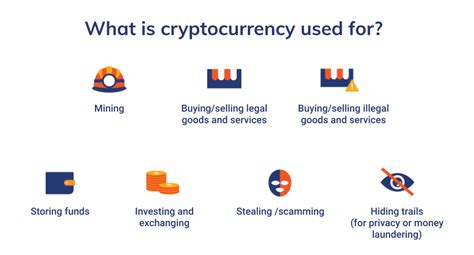The Role of Privacy in the Cryptocurrency Ecosystem
As the popularity of cryptocurrencies continues to grow, concerns about security and compliance have also grown. One area where privacy has become a major focus is the cryptocurrency ecosystem. In this article, we will delve into the role of privacy in cryptocurrencies, examining its benefits, challenges, and future developments.
What is privacy in cryptocurrency?
Traditional computer networks use data encryption to protect user information from unauthorized access. However, cryptocurrencies operate on a public ledger called a “blockchain” that records all transactions made online. While this makes it difficult for malicious entities to alter or manipulate transactions, it also means that individual users have limited control over their private keys and financial information.
The Problem with Public Key Infrastructure (PKI)
The current system relies on a public key infrastructure (PKI), which is vulnerable to attacks by malicious actors. With the introduction of wallets like Ledger and Trezor, individuals can now securely store large amounts of digital currency using either a physical device or a software wallet.
However, even with secure storage solutions, there remains a risk that sensitive information can be accessed by unauthorized parties. This is where privacy comes in.
Advantages of Private Cryptocurrency Transactions
Private cryptocurrencies like Monero and Zcash aim to address these issues by implementing advanced cryptographic technologies and using a decentralized network. These currencies operate without central authority or government regulation, making them attractive to individuals who want to maintain their anonymity online.
Some of the key advantages of private cryptocurrency transactions are:
- Enhanced Security: Private cryptocurrencies use advanced cryptographic techniques such as ring signatures and zero-knowledge proofs to protect user data.
- Enhanced anonymity: Transactions are pseudonymous, meaning users can make purchases without revealing their identity or financial information.
- Enhanced privacy: Private cryptocurrencies operate on a decentralized network, reducing the risk of data breaches and hacking.
Challenges and limitations

While private cryptocurrencies have made significant progress in addressing security and compliance issues, they still face several challenges:
- Infrastructure costs: Building and maintaining private cryptocurrency infrastructure can be expensive, especially compared to public blockchains.
- Scalability limitations: Private cryptocurrencies often suffer from scalability issues, making it difficult for users to transfer large amounts of funds efficiently.
- Regulatory uncertainty: Governments and regulators are still grappling with the implications of private cryptocurrencies, leading to uncertainty about their future.
Future Development
As the cryptocurrency ecosystem continues to evolve, we can expect further innovations in private cryptography. Some of the potential developments include:
- Improved Security Protocols: Researchers are working to develop more secure cryptographic methods, such as homomorphic encryption and zero-knowledge proofs.
- Decentralized Applications (dApps): Private cryptocurrencies are integrated into decentralized applications, which can provide a smoother user experience while maintaining user anonymity.
- Cross-chain compatibility: The development of cross-chain protocols will allow private cryptocurrencies to be used on multiple blockchains, eliminating the need for users to switch between different platforms.
